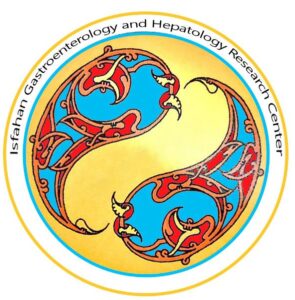| Guideline |
Guideline Topic: A summary of recommendations for the periendoscopic management of anticoagulant and antiplatelet drugs during acute gastrointestinal (GI) bleeding and the elective endoscopic setting
Guideline development methods: A group of gastroenterologists, cardiologists, and thrombosis experts conducted a systematic review in Medline, Embase, and Central databases based on the PICO format. They reviewed predefined clinical questions and used the Grading of Recommendations, Assessment, Development, and Evaluations (GRADE) approach to develop recommendations
Recommendations:
| Management of antithrombotic agents in the setting of acute GI bleed | Management of antithrombotic agents in the elective endoscopy setting |
|
Vitamin K antagonist reversal |
Anticoagulant interruption vs. continuation |
| *For patients on warfarin who are hospitalized or under observation with acute GI* bleeding, It is suggested against FFP* administration (conditional recommendation, very low certainty of evidence)
*For patients on warfarin who are hospitalized or under observation with acute GIB, there isn’t a recommendation for or against PCC* administration *For patients on warfarin who are hospitalized or under observation with acute GIB, it is suggested PCC administration compared with FFP administration (conditional recommendation, very low certainty of evidence) *For patients on warfarin who are hospitalized or under observation with acute GIB (upper and/or lower), it is suggested against the use of vitamin K (conditional recommendation, very low certainty of evidence) |
*For patients on warfarin undergoing elective/planned endoscopic GI procedures, it is suggested warfarin be continued, as opposed to temporarily interrupted (1–7 d) (conditional recommendation, very low certainty of evidence)
*For patients on warfarin, who hold warfarin in the periprocedural period for elective/planned endoscopic GI procedures, it is suggested against bridging anticoagulation (conditional recommendation, low certainty of evidence) *For patients on DOACs* who are undergoing elective/planned endoscopic GI procedures, it is suggested to temporarily interrupt DOACs rather than continue DOACs (conditional recommendation, very low certainty of evidence) |
|
Direct thrombin inhibitor reversal (dabigatran) |
Antiplatelet interruption vs. continuation |
| *For patients on dabigatran who are hospitalized or under observation with acute GIB, it is suggested against the administration of idarucizumab (conditional recommendation, very low certainty of evidence) | *For patients on dual antiplatelet therapy for secondary prevention who are undergoing elective endoscopic GI procedures, it is suggested temporary interruption of the P2Y12 receptor inhibitor while continuing ASA (conditional recommendation, very low certainty of evidence)
*For patients on single antiplatelet therapy with a P2Y12 receptor inhibitor who are undergoing elective endoscopic GI procedures, there isn’t a recommendation for or against temporary interruption of the P2Y12 receptor inhibitor *For patients on ASA* 81–325 mg/d (i.e., cardiac ASA monotherapy) for secondary prevention, it is suggested against interruption of ASA (conditional recommendation, very low certainty of evidence) |
|
Reversal of rivaroxaban/apixaban with andexanet alfa |
Timing of anticoagulant resumption after endoscopy |
| *For patients on rivaroxaban or apixaban who are hospitalized or under
*observation with acute GIB, it is suggested against and exanet alfa administration (conditional recommendation, very low certainty of evidence) |
*In patients who are undergoing elective endoscopic GI procedures whose warfarin was interrupted, there isn’t a recommendation for or against resuming warfarin the same day vs. 1–7 d after the procedure
*In patients who are undergoing elective endoscopic GI procedures whose DOAC was interrupted, there isn’t a recommendation for or against resuming the DOAC on the same day of the procedure vs. 1–7 days after the procedure |
|
Reversal of direct oral anticoagulant with PCC |
Timing of P2Y12 inhibitor resumption after endoscopy |
| *For patients on DOACs who are hospitalized or under observation with acute GIB, it is suggested against PCC administration (conditional recommendation, very low certainty of evidence) | *In patients who are undergoing elective endoscopic GI procedures whose P2Y12 inhibitor was interrupted, there isn’t a recommendation for or against resuming P2Y12 inhibitor on the same day of the procedure vs 1–7 d after the procedure |
|
Reversal of antiplatelet with platelet transfusion |
|
| *For patients on antiplatelet agents who are hospitalized or under observation with acute GIB, it is suggested against platelet transfusions (conditional recommendation, very low certainty of evidence) | |
|
Holding ASA vs. continuing ASA |
|
| *For patients with GI bleeding on cardiac ASA for secondary prevention, it is suggested against holding the ASA (conditional recommendation, very low certainty of evidence) | |
|
Resumption of ASA after endoscopic hemostasis |
|
| *For patients with GI bleeding on ASA for secondary cardiovascular prevention whose ASA was held, it is suggested the ASA be resumed on the day hemostasis is endoscopically confirmed (conditional recommendation, very low certainty of evidence) | |
Commentary:
| This guideline was unable to suggest either PCC administration or placebo in patients with acute GI bleeding who were taking warfarin due to a lack of evidence. The guideline was unable to advise either in favor of or against temporarily stopping the P2Y12 receptor inhibitor for patients taking a single P2Y12 inhibiting medication in the elective periprocedural endoscopic context. Additionally, the study was unable to indicate whether anticoagulants or P2Y12 receptor inhibitors should be resumed immediately following surgery as opposed to one to seven days later |
Citation: Neena S. Abraham, Alan N. Barkun, Bryan G. Sauer, and et all. American college of gastroenterology-canadian association of gastroenterology clinical practice guideline: management of anticoagulants and antiplatelets during acute gastrointestinal bleeding and the periendoscopic period. The American Journal of Gastroenterology. 2022; 117(4): 542–558
DOI: 10.14309/ajg.0000000000001627
https://pubmed.ncbi.nlm.nih.gov/35297395/
Topics: Anticoagulants, Antiplatelets, Acute Gastrointestinal Bleeding, Periendoscopic Period


